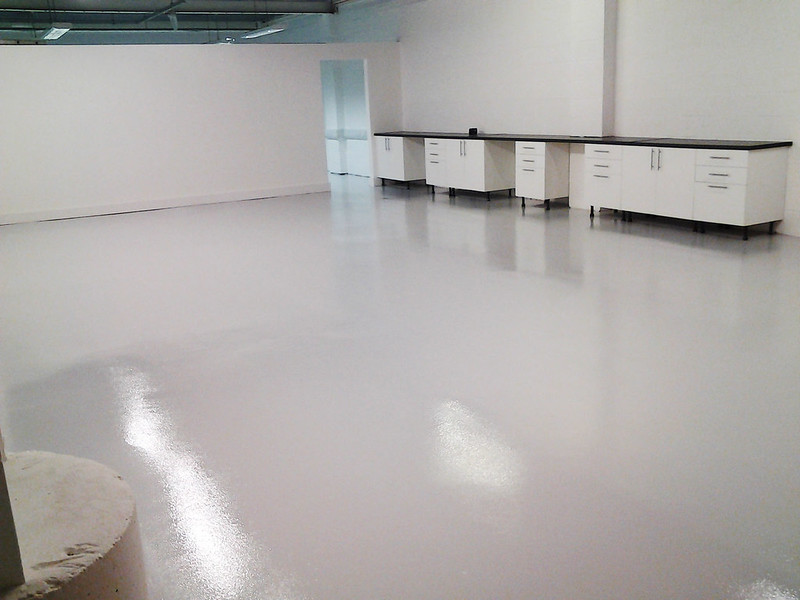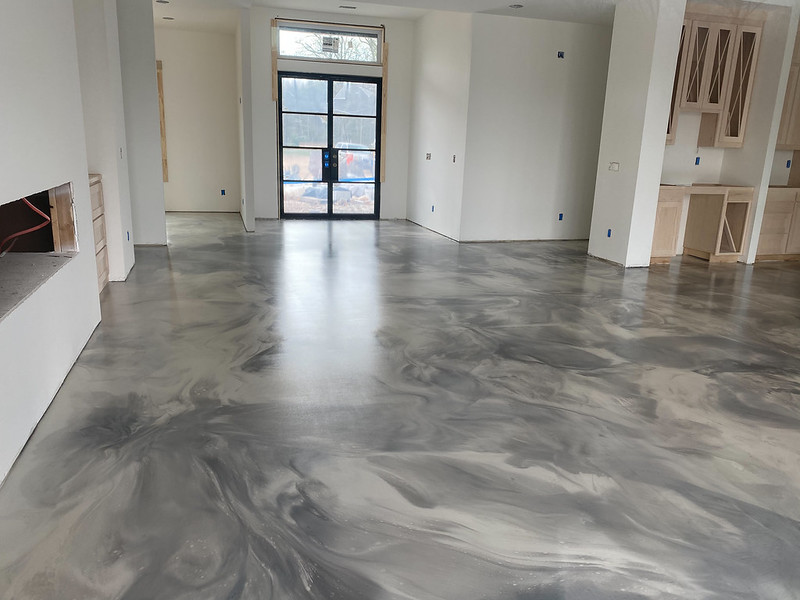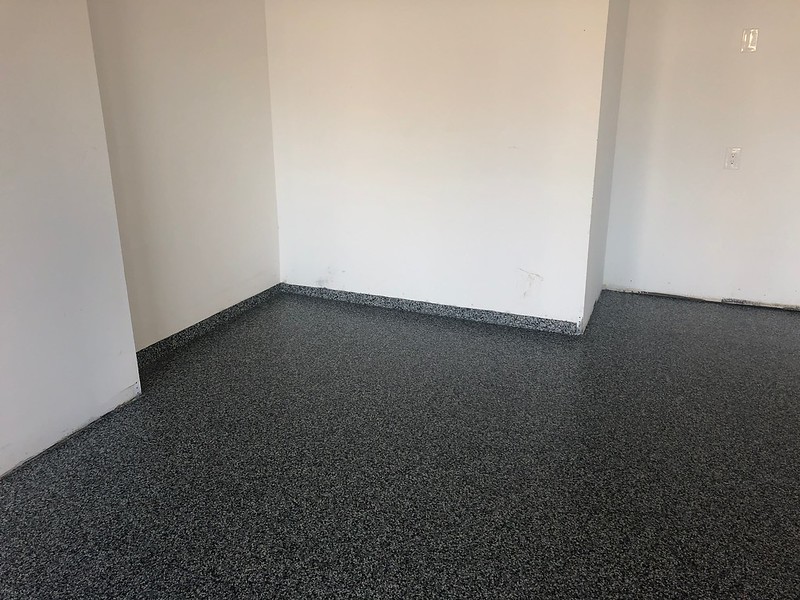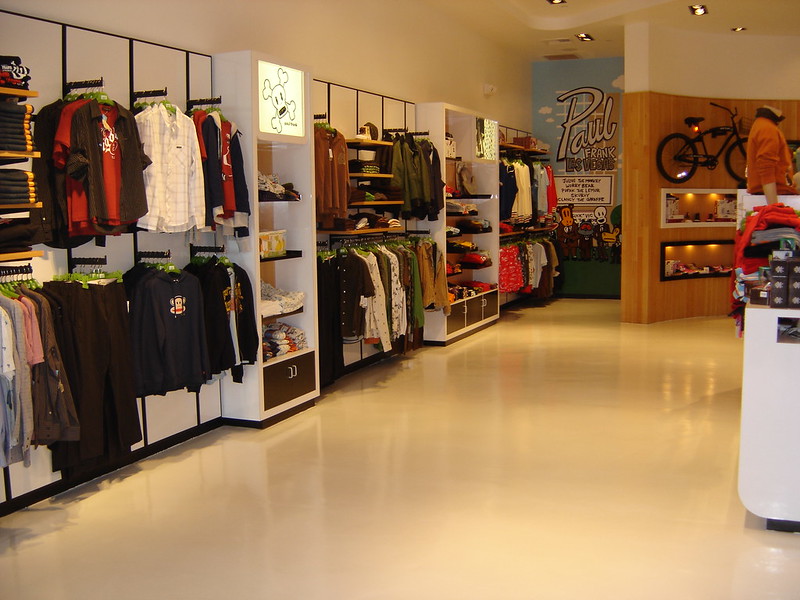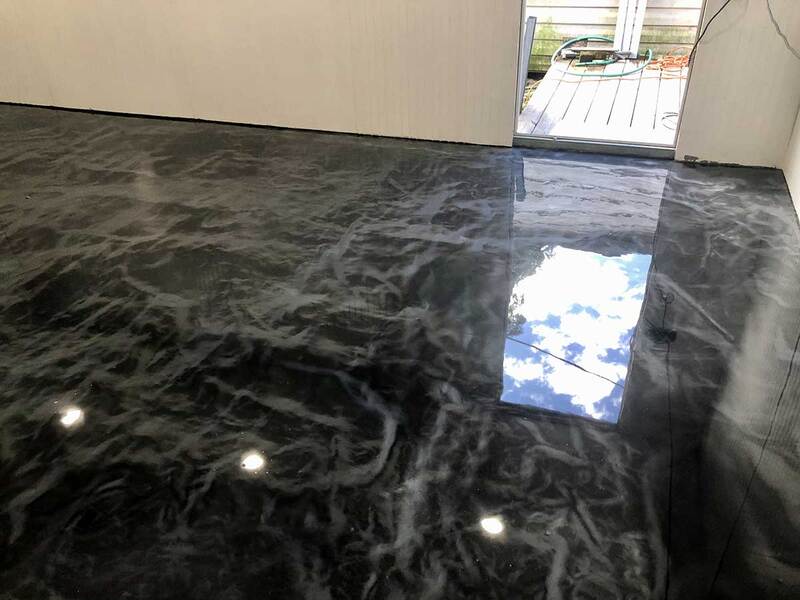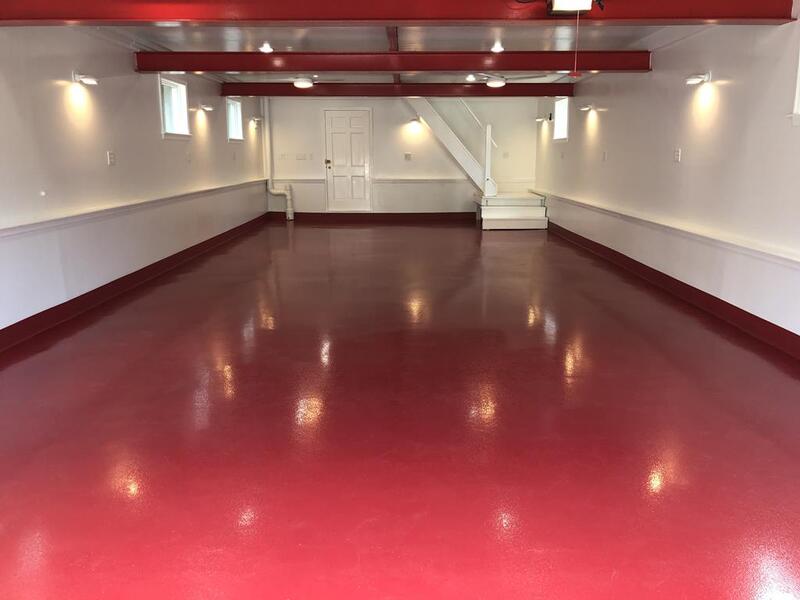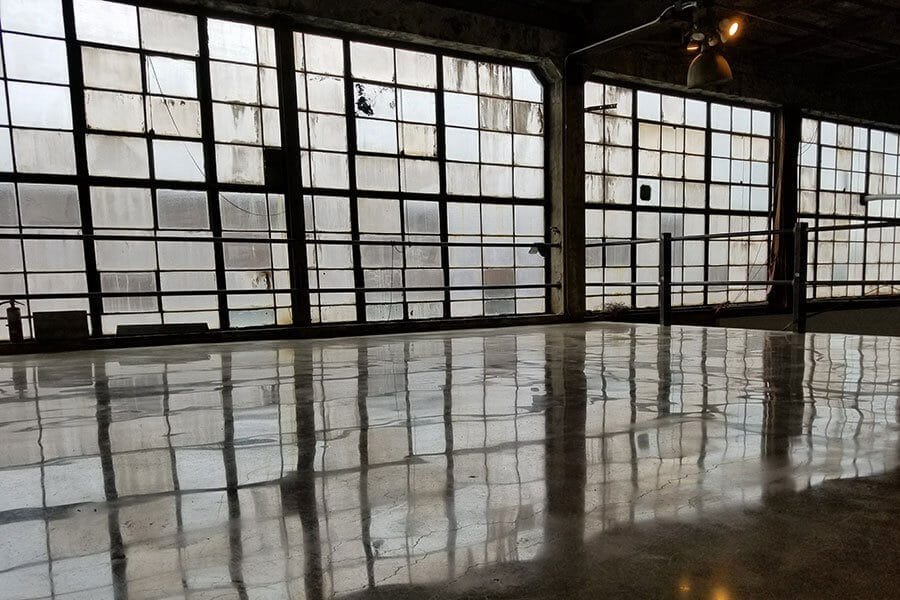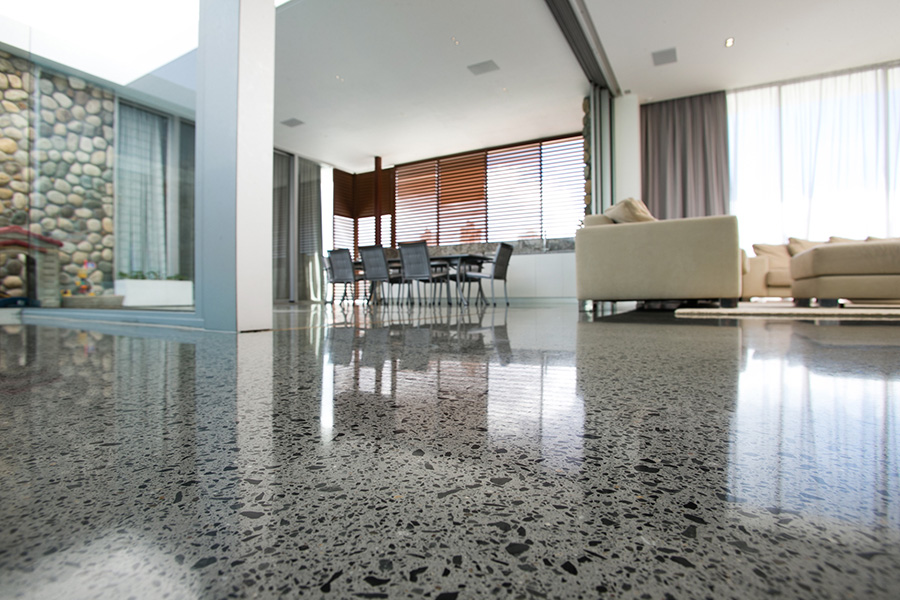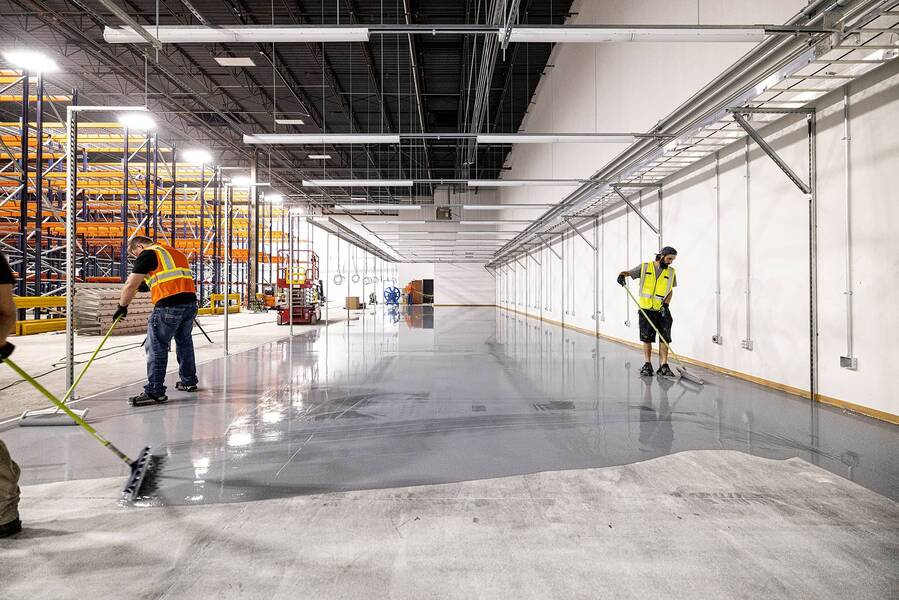Are you tired of dealing with weak and worn-out flooring in your industrial space? Look no further than industrial epoxy, the powerhouse solution you’ve been searching for. With its unmatched durability and strength, industrial epoxy can handle even the toughest conditions. Not only that, but its versatility makes it perfect for a variety of applications. In this article, we’ll explore the many benefits of industrial epoxy and provide you with valuable maintenance and cleaning tips. Get ready to revolutionize your floors with industrial epoxy.
Benefits of Industrial Epoxy Flooring
Are you wondering what makes industrial epoxy flooring such a powerhouse solution? Well, let’s dive into the benefits of this remarkable flooring option. Industrial epoxy flooring is known for its exceptional durability and resistance to wear and tear. It can withstand heavy foot traffic, impacts, and chemical spills, making it ideal for high-traffic areas such as warehouses and factories.
One of the key advantages of industrial epoxy flooring is its seamless and non-porous nature. This means that it provides a smooth and hygienic surface that is easy to clean and maintain. The non-porous surface prevents the absorption of liquids, oils, and chemicals, making spills easy to clean up without leaving any stains or damage.
Furthermore, industrial epoxy flooring offers excellent resistance to abrasion, making it highly suitable for industrial environments where heavy machinery and equipment are used. It can withstand the movement of heavy loads and the scraping of equipment without getting damaged.
In addition to its durability and resistance, industrial epoxy flooring also provides a safe working environment. It can be customized with anti-slip properties, ensuring that workers can move around safely, even in wet or oily conditions. This reduces the risk of accidents and injuries in the workplace.
Moreover, industrial epoxy flooring is available in a wide range of colors and finishes, allowing you to choose a design that suits your specific needs and aesthetic preferences. Whether you want a high-gloss finish or a more matte appearance, industrial epoxy flooring can be tailored to your requirements.
Durability and Strength of Industrial Epoxy
You’ll be amazed at the durability and strength of industrial epoxy flooring. Industrial epoxy is a powerhouse flooring solution that can withstand heavy loads, constant foot traffic, and harsh conditions. Here are three reasons why industrial epoxy is known for its exceptional durability and strength:
Chemical Resistance: Industrial epoxy flooring is highly resistant to chemicals, making it ideal for industries that deal with corrosive substances. The epoxy coating creates a protective barrier that prevents chemicals from seeping into the underlying concrete, ensuring the longevity of the flooring. This resistance also makes industrial epoxy flooring easier to clean and maintain, as spills can be quickly wiped away without causing any damage.
Impact Resistance: One of the key features of industrial epoxy flooring is its ability to withstand heavy impacts. Whether it’s heavy machinery being dropped or tools being accidentally knocked over, industrial epoxy can handle the pressure. The epoxy coating acts as a shock absorber, distributing the impact force across the surface and preventing cracks or dents from forming. This impact resistance ensures that the flooring remains intact even in high-traffic areas.
Abrasion Resistance: Industrial environments often involve the movement of heavy equipment and machinery, which can cause wear and tear on the flooring. However, industrial epoxy is designed to be highly resistant to abrasion. The protective coating acts as a shield, preventing scratches, scuffs, and other signs of wear from appearing on the surface. This abrasion resistance ensures that the flooring maintains its smooth and polished appearance, even after years of use.
Versatility in Industrial Epoxy Applications
With its wide range of uses and applications, industrial epoxy provides a versatile solution for various flooring needs. Whether you require a seamless, high-performance floor in a factory, warehouse, laboratory, or commercial space, industrial epoxy can meet your requirements. One of the key benefits of industrial epoxy is its ability to be customized to suit different environments and industries. It can be formulated to withstand heavy foot traffic, chemicals, impacts, and abrasions, making it ideal for areas such as manufacturing plants, garages, and hospitals.
Industrial epoxy can also be applied in a variety of thicknesses, ranging from thin coatings to self-leveling systems. This versatility allows for the creation of smooth, level surfaces or the repair of damaged concrete floors. Additionally, industrial epoxy can be applied to both new and existing concrete surfaces, providing a cost-effective solution for floor renovation projects.
Furthermore, industrial epoxy is available in a wide range of colors and finishes, allowing for customization based on aesthetic preferences or to meet specific safety requirements. For example, high-visibility lines and markings can be incorporated into the epoxy flooring to enhance safety in industrial settings.
Another application of industrial epoxy is in the creation of decorative flooring. By incorporating different pigments, flakes, or metallic powders, epoxy can transform a plain concrete floor into a visually appealing and durable surface. This makes it a popular choice for retail spaces, showrooms, and even residential properties.
Maintenance and Cleaning Tips for Industrial Epoxy Floors
To keep your industrial epoxy floors looking their best, follow these three simple maintenance and cleaning tips:
Regular sweeping and dusting:Dust and debris can accumulate on the surface of your epoxy floors, diminishing their shine and appearance. To prevent this, make sure to sweep or dust the floors regularly using a soft-bristle broom or a dust mop. Avoid using abrasive materials that can scratch or damage the epoxy coating. By removing dirt and dust regularly, you can maintain the cleanliness and enhance the longevity of your epoxy floors.
Promptly clean up spills: Accidental spills are inevitable in industrial settings, but it is crucial to clean them up promptly to prevent any damage to your epoxy floors. Epoxy coatings are resistant to spills and stains, but certain substances like oils, chemicals, or acidic liquids can cause discoloration or deterioration if left unattended. Immediately wipe up any spills using a soft cloth or mop and a mild detergent or specialized epoxy floor cleaner. This will prevent the spills from seeping into the epoxy coating and ensure your floors remain in top condition.
Avoid harsh cleaning agents: While epoxy floors are durable and resistant to most chemicals, it is important to avoid using harsh cleaning agents that can degrade the epoxy coating. Acidic or alkaline cleaners, abrasive scrub brushes, or high-pressure cleaning equipment can compromise the integrity of the epoxy finish. Instead, opt for mild, pH-neutral cleaners specifically designed for epoxy floors. These cleaners will effectively remove dirt and stains without causing any harm to the epoxy surface.
Choosing the Right Industrial Epoxy for Your Needs
When it comes to choosing the right industrial epoxy for your needs, it’s important to consider factors such as durability, chemical resistance, and application method. Industrial epoxy flooring is designed to withstand heavy loads, foot traffic, and chemical spills, providing a durable and long-lasting solution for various industrial environments.
Durability is a key consideration when selecting industrial epoxy. The flooring should be able to withstand the daily wear and tear that comes with industrial operations. Look for epoxy systems that have high compressive strength and abrasion resistance, as these characteristics indicate a more durable flooring option.
Chemical resistance is another critical factor to consider. Depending on the industry or specific application, the flooring may come into contact with various chemicals, such as oils, solvents, and acids. Ensure that the epoxy you choose is resistant to the chemicals commonly found in your workplace. This will help prevent any damage or deterioration of the flooring over time.
The application method of the epoxy system is also crucial. Different epoxy systems require different application techniques, and the choice will depend on your specific requirements and preferences. Some options include self-leveling epoxies, which are easy to apply and provide a smooth finish, or troweled epoxies, which are ideal for environments that require a thicker coating to withstand heavy traffic or impact.
Additionally, it’s essential to consider the curing time of the epoxy system. Some epoxy coatings require longer curing times, which may not be feasible if there’s limited downtime in your facility. Look for epoxy systems that offer quick curing times, allowing you to minimize disruption to your operations.
Key Takeaways
- Industrial epoxy flooring offers exceptional durability and resistance to wear and tear.
- It can withstand heavy foot traffic, impacts, and chemical spills.
- Industrial epoxy provides a smooth and hygienic surface that is easy to clean and maintain.
- The flooring can be customized with anti-slip properties for a safe working environment.

